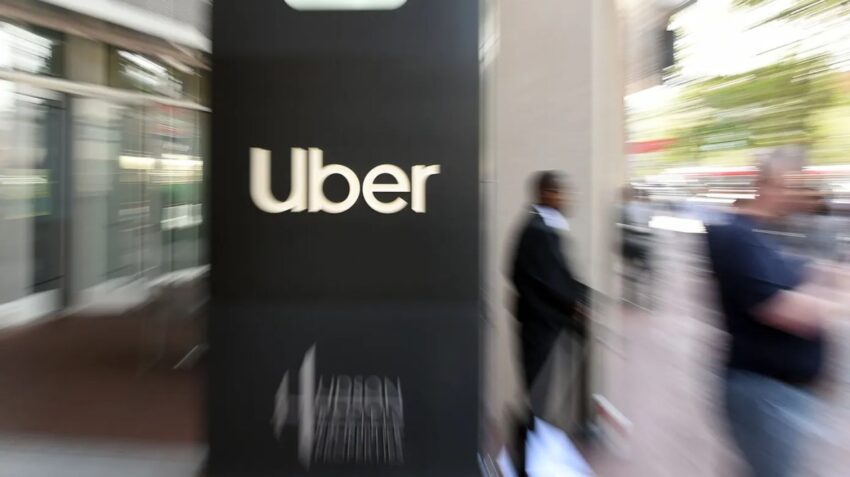
justice department sues uber for allegedly discriminating The U.S. Department of Justice has filed a lawsuit against Uber, alleging the company discriminates against individuals with disabilities, marking a significant escalation in ongoing scrutiny over the ride-hailing giant’s treatment of vulnerable populations.
justice department sues uber for allegedly discriminating
Background of the Lawsuit
The lawsuit, filed on September 11, 2025, in the U.S. District Court for the Northern District of California, stems from claims that Uber has failed to provide adequate services to riders with disabilities. This legal action is part of a broader initiative by the Justice Department to ensure compliance with the Americans with Disabilities Act (ADA), which mandates equal access to public services for individuals with disabilities.
Uber’s services have faced criticism for years regarding their accessibility features. The company has been accused of not adequately accommodating riders who require specialized transportation options, such as those using wheelchairs or other mobility devices. The lawsuit highlights specific instances where riders with disabilities faced significant challenges when attempting to use the app, including a lack of accessible vehicles and inadequate support from drivers.
Details of the Allegations
The Justice Department’s lawsuit outlines several key allegations against Uber:
- Inadequate Vehicle Availability: The complaint asserts that Uber has not ensured a sufficient number of accessible vehicles in its fleet, leading to long wait times or complete unavailability for riders with disabilities.
- Driver Training Deficiencies: The lawsuit claims that Uber has not provided adequate training to its drivers on how to assist passengers with disabilities, which can lead to uncomfortable or unsafe situations for these riders.
- Failure to Address Complaints: The Justice Department alleges that Uber has not effectively addressed complaints from riders with disabilities, often leaving them without recourse when they experience discrimination or inadequate service.
These allegations are particularly concerning given the increasing reliance on ride-hailing services among individuals with disabilities. According to a 2023 report from the National Council on Disability, nearly 25% of individuals with disabilities reported using ride-hailing services as their primary mode of transportation. The lack of accessible options can severely limit their mobility and independence.
Implications of the Lawsuit
The implications of this lawsuit extend beyond Uber and could set a precedent for how ride-hailing companies operate in the future. If the Justice Department prevails, Uber may be required to implement significant changes to its business model, including:
- Increased Accessibility: Uber may need to invest in a larger fleet of accessible vehicles, ensuring that riders with disabilities have equal access to its services.
- Enhanced Driver Training: The company could be mandated to provide comprehensive training for drivers on how to assist passengers with disabilities, including proper loading and unloading techniques.
- Improved Complaint Resolution Processes: Uber may be required to establish more effective channels for addressing complaints from riders with disabilities, ensuring that their concerns are taken seriously and acted upon promptly.
These changes could significantly impact Uber’s operational costs and business model. However, they could also enhance the company’s reputation and customer loyalty among a demographic that has historically faced barriers to transportation.
Stakeholder Reactions
The lawsuit has elicited a range of reactions from various stakeholders, including advocacy groups, legal experts, and Uber itself. Disability rights advocates have welcomed the Justice Department’s action, viewing it as a necessary step toward ensuring equal access to transportation for all individuals.
“This lawsuit is a critical move toward holding Uber accountable for its obligations under the ADA,” said a spokesperson for the American Association of People with Disabilities. “Riders with disabilities deserve the same level of service and respect as any other customer.”
On the other hand, Uber has expressed disappointment regarding the lawsuit. In a statement, the company emphasized its commitment to improving accessibility and noted that it has made strides in recent years to enhance its services for riders with disabilities. “We are dedicated to providing safe and reliable transportation for everyone, and we believe that our efforts to improve accessibility should be recognized,” the statement read.
Historical Context of Accessibility in Ride-Hailing Services
The issues surrounding accessibility in ride-hailing services are not new. Since the inception of companies like Uber and Lyft, there have been ongoing discussions about how these platforms can better serve individuals with disabilities. While both companies have introduced programs aimed at improving accessibility, many advocates argue that these efforts have not gone far enough.
For instance, Uber launched its “Uber WAV” (Wheelchair Accessible Vehicle) service in select cities, aiming to provide accessible rides for individuals who use wheelchairs. However, critics have pointed out that the availability of these vehicles is often limited, and riders frequently encounter challenges when trying to book them. This inconsistency has led to frustration and disappointment among users who rely on these services for their daily transportation needs.
Legal Precedents and Challenges
The legal landscape surrounding accessibility in transportation is complex. The ADA has been a critical piece of legislation in protecting the rights of individuals with disabilities since its enactment in 1990. However, the interpretation and enforcement of the law in the context of emerging technologies, such as ride-hailing apps, have raised questions about compliance and accountability.
Previous legal actions against transportation companies have set important precedents. For example, in 2019, the New York City Taxi and Limousine Commission implemented regulations requiring ride-hailing companies to ensure that a certain percentage of their fleet is wheelchair accessible. This move was seen as a significant step toward improving transportation options for individuals with disabilities.
However, enforcing similar regulations on a national level can be challenging. The Justice Department’s lawsuit against Uber may pave the way for more stringent regulations across the industry, but it also faces potential legal hurdles. Uber may argue that the nature of its business model complicates its ability to provide universally accessible services, citing the independent contractor status of its drivers as a key factor.
Future Considerations
As the lawsuit unfolds, it will be essential to monitor its impact on Uber and the broader ride-hailing industry. The outcome could lead to significant changes in how these companies operate, particularly concerning their obligations to provide accessible services. Additionally, it may prompt other ride-hailing platforms to reevaluate their accessibility policies to avoid similar legal challenges.
Moreover, the lawsuit highlights the ongoing need for advocacy and awareness surrounding disability rights in the transportation sector. As technology continues to evolve, it is crucial for companies to prioritize inclusivity and ensure that all individuals have equal access to essential services.
In conclusion, the Justice Department’s lawsuit against Uber represents a critical moment in the ongoing fight for accessibility in transportation. As the case progresses, it will serve as a litmus test for the ride-hailing industry’s commitment to serving all customers, regardless of their physical abilities. The outcome could have far-reaching implications, not only for Uber but for the future of accessible transportation as a whole.
Source: Original report
Was this helpful?
Last Modified: September 12, 2025 at 12:41 am
4 views















